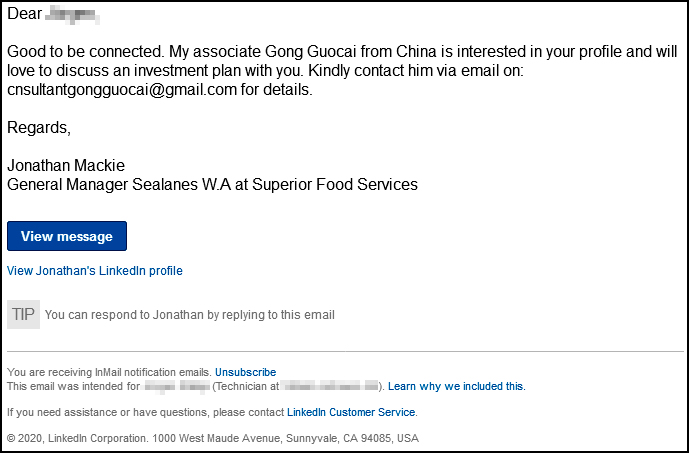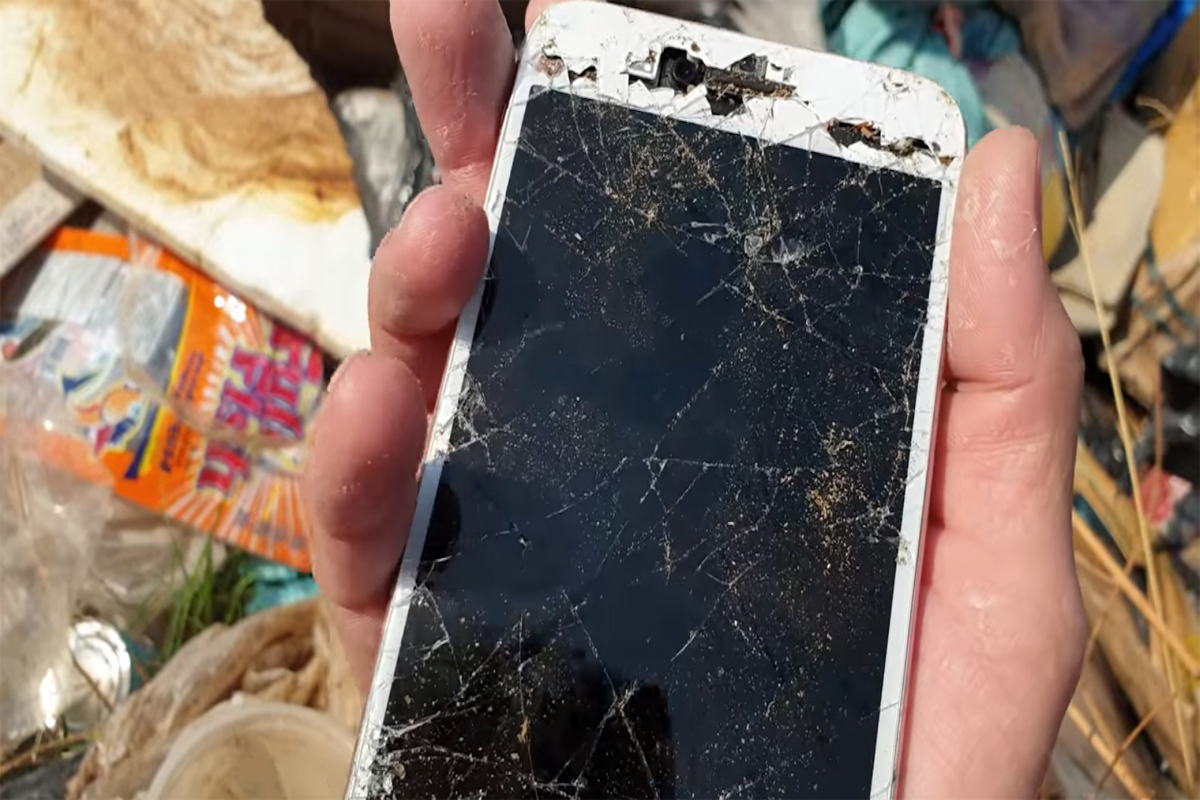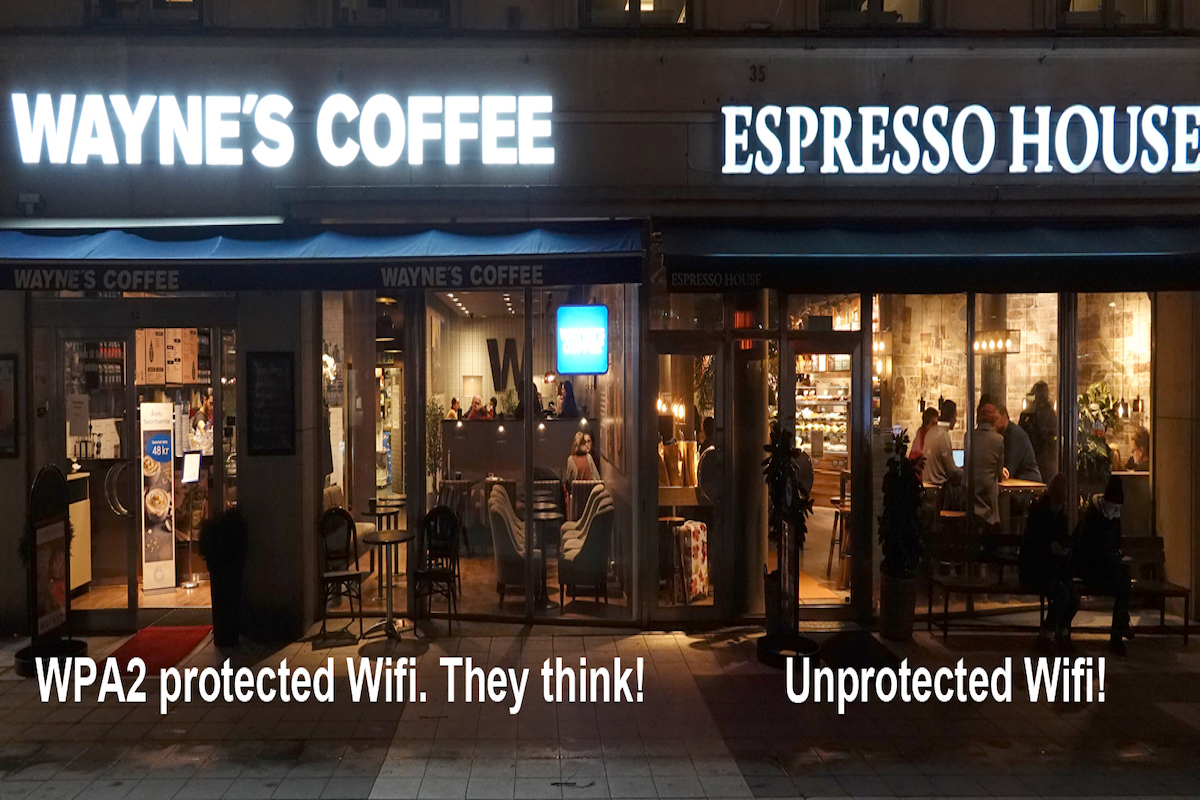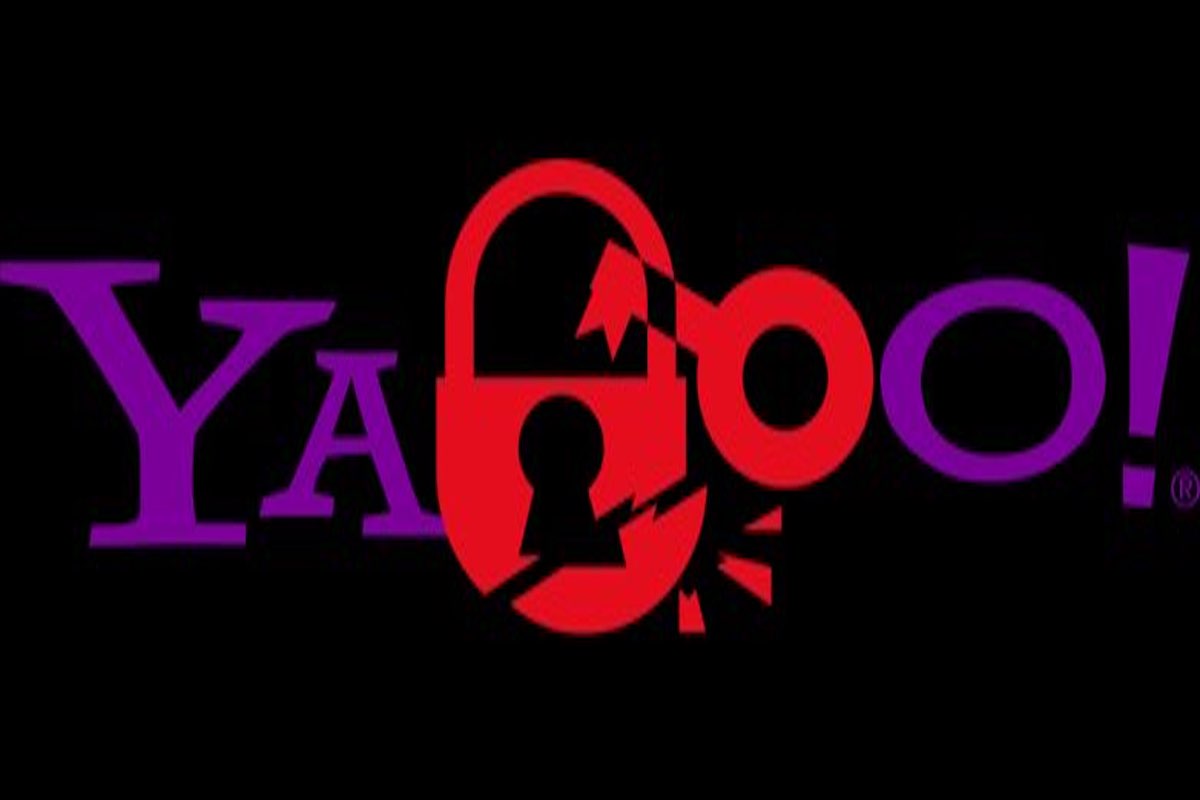Do you think all the exciting emails that land in your inbox came from your friends or business contacts, and that the intentions are good?
Do you think all the exciting emails that land in your inbox came from your friends or business contacts, and that the intentions are good? They look so good.
Far from it. During junk mail high season, some 95% of all emails that flow around the Internet are fake, scams or junk. The vast majority of email providers employs filters that wipes out most of the junk, but despite this the average user gets some 30-50 junk mails a day.
1 How do you recognize them?
Please! Chong Ding Dong is interested in giving you millions, and discuss a business relationship. Have you ever heard of him? You can unsubscribe (hmm, how did you become a subscriber?) by clicking the link at the bottom. It will signal that you read the message and are ready for more scams. And all these references to Linkedin are used to make it look real. Is Mr. Dong really a Linkedin associate of yours? Delete is a very good button to click on.
That package you haven’t ordered, just arrived. Perhaps someone ordered it in your name? Better investigate. Just click the link and have your computer infected. But, it looks so real? It has the DHL logo, your mail address and all. These are very easy to find on the internet. Every cyber criminal knows how to do it. And if you look closely at the URL’s in the mail, they are “dh1” (dh-one), looking very much like “dhl”. Don’t be fooled.
Yesss! The relief money you need so badly, are ready for payout. It looks real enough, with logos, disclaimer and all, doesn’t it? But, wait! Did you ever ask for any relief money from Dubai? Surely you know that you haven’t applied for a loan at some obscure bank, which lives in a Towel? Obviously you haven’t, but it could be tempting to check if someone has made a mistake and wants to lend you money? Be sure: no one wants to lend money. Instead, they want your money.
2 Other examples
Bitcoin scamming is getting popular. You probably know for sure if you have invested in Bitcoin or any other crypto currency. And if you haven’t, how come you have GBP8,337 that just have to be withdrawn now, soon, or the account will expire? Surely it can feel tempting to just effortlessly collect thousands of pounds? An ideal situation? Of course, there is no money, just someone who wants your personal information.
Free tickets for you. Hooray! You just won a free ticket to a cinema show. Just enter all your personal information and download the apps and be tricked again and again.
How come there’s so much junk that keeps on flowing? Written in bad English? The fraudsters have automatic methods to collect valid email addresses and pay zero pounds to send a billion letters. So why not go ahead?
3 Don’t be fooled
- Do not click on anything in the email. Quarantine it in the junk folder. Each link can lead to dangerous content.
- Check if the email comes from a trusted source, friend, or company with whom you do business. Ask them if they sent the email. And if so, why!
- There’s usually a link at the bottom for those who don’t want more junk, which can be clicked to unsubscribe. By doing that, you indicate that you exist and have read the letter. Hey presto, you get more rubbish.
- Delete.
- Is the mail written in a language you do not understand? Why would any of your friends send a letter in Chinese, Sanskrit or some other strange language? Delete.
- Isn’t it strange that the Post Office sends you letters in Hungarian? The P.O. is an easy target for all kinds of hackers and liars. The P.O. states over and over that they do not send out any emails. Delete.
- How is it that your bank sends you an email asking for your personal information or equivalent? Don’t they have the information? Clearly, they must have it already. Delete.
- All good email systems have a junk folder. Discard all garbage to the junk folder. This teaches the system what you consider to be junk, and the system will clean up for you.
- Empty the junk folder frequently.
- Set tougher filter rules to automatically remove junk. For example, filter all mail from senders in .ru, .ua, .hu, .cn, .in, .eu, .xxx, .institut.
- The vast majority of spam mail comes from .com. Watch out for strange .com email addresses, like 67660011.com, empower-university.com, globalhouseusa.com, hgj156gh.diskstation.org, kiranwaterhouse.com, logoninjas.com, mediaanabsfinancialservice.com, punsexual.com, talkwithwebvisitor.com, tradingwhatisee.com, vivacesinvestments.com, zverstvo.com.
Despite all the spam filtering, cyber criminals continue to send billions of spam mails every day. The letters intrude all corners of the globe. The criminals continue, because it pays off. If only 0.1% of recipients fall for the scam, there are still a lot of money to be made by selling personal data and credit card numbers.
It’s nothing personal. They just want your money!
Do the opposite. Be suspicious. Delete the rubbish!
How come there’s so much junk that keeps on flowing? Written in bad English? The fraudsters have automatic methods to collect valid email addresses and pay zero pounds to send a billion letters. So why not go ahead?
MORE ARTICLES TO READ

Privacy
Integrity – Nag, Nag, Nag!
The problem with integrity is that it is a bit abstract and difficult to grasp as a con...

Hacks and Incidents
The Big Hacks that Shook the World
Hackers are international criminals. The Internet allows them to operate anywhere in th...
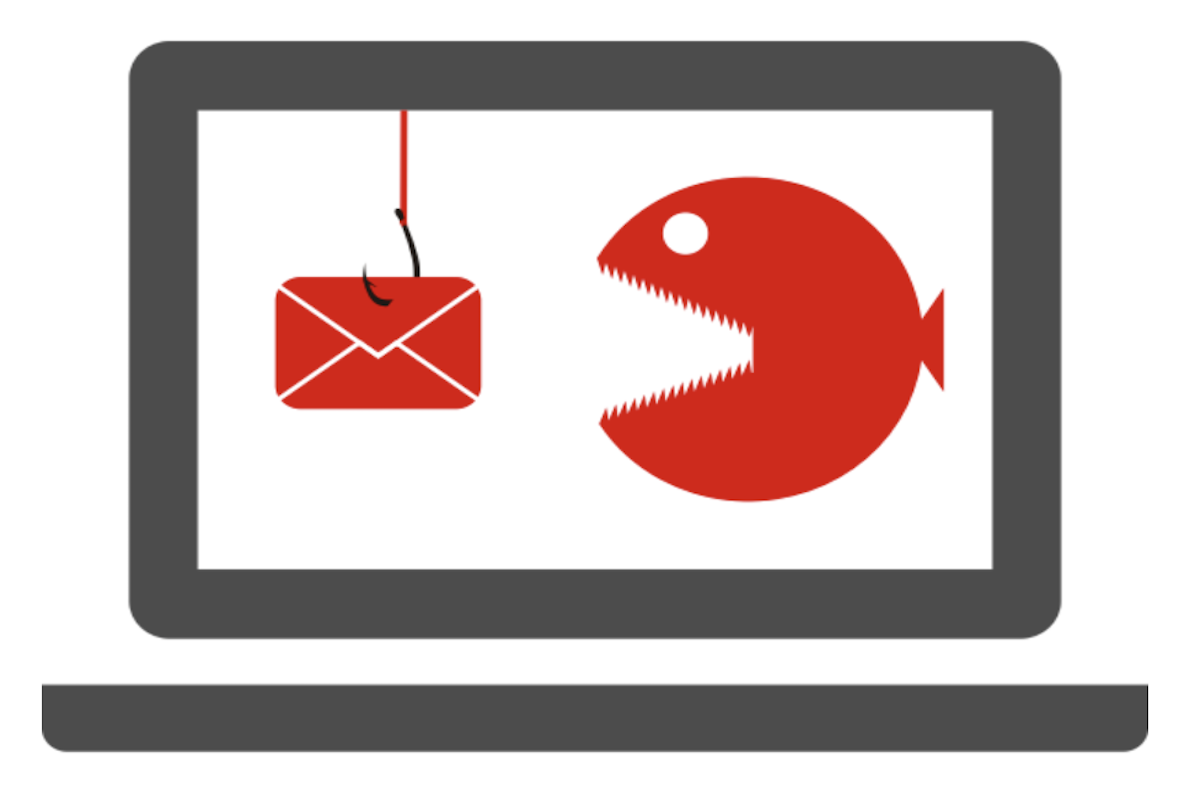
Internet Security
How to recognise phishing email
Do you think all the exciting emails that land in your inbox came from your friends or ...

Privacy
How to be invisible online
Taking just a few smart steps can aide your invisibility online and remember it’s impor...

Corporate news
Hidden24 top 10 rated in Tech Advisors VPN review
Tech Advisor's VPN review praised Hidden24’s simplicity of install, detailed graphical ...
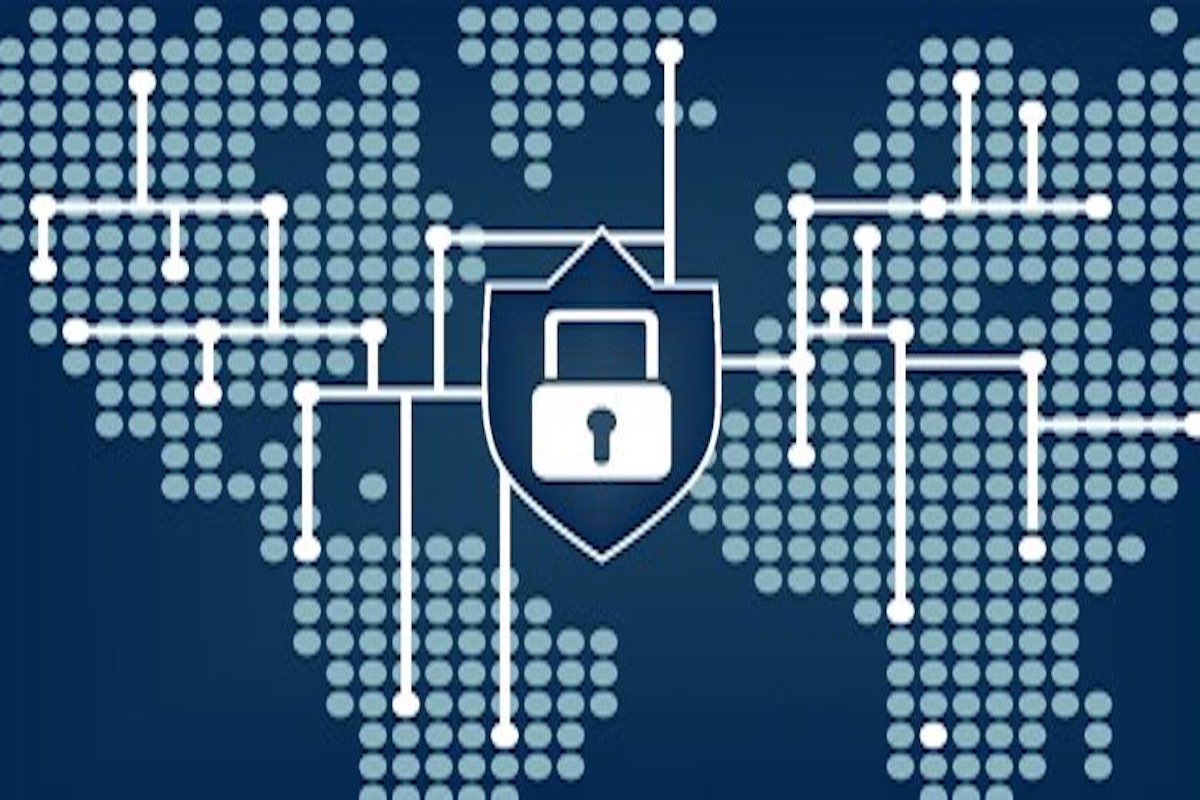
VPN
VPN: The Ultimate Beginners Guide
VPNs are quite popular with everyone in today’s world. VPNs are quite popular with ever...




